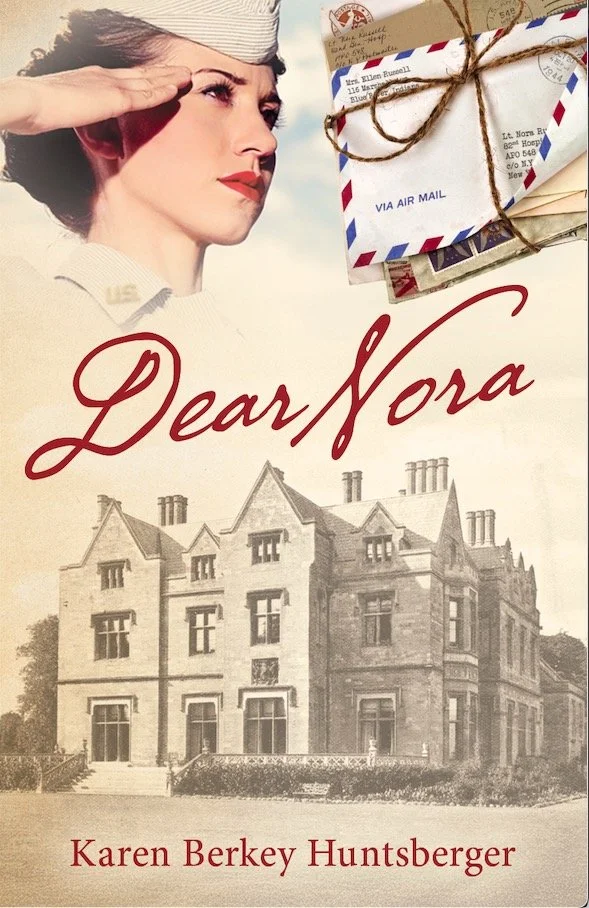New!
Reeling from a broken heart, army nurse Nora Russell boards a troop ship in Boston, destination unknown. Assigned to a hospital in Wales treating shell shock (PTSD) patients, she experiences the consequences of war. Nora's work intensifies when she transfers to a neuropsychiatry center in England. There, Nora meets a British psychiatrist who intrigues her and makes her wonder if she can ever love again.
Back home, Nora’s mother Ellen tries to remain positive with her children away at war, but she has promised to tell Nora everything. Soon, Ellen is facing her older sister’s cancer battle and a nephew missing in action. Then, when a long-buried family secret surfaces, her life becomes upended.
Nora’s best friend, Louise Baker, doesn’t understand why everyone leaves her—her parents are gone and her husband’s in the infantry. Raising a toddler alone, she needs to find a job to keep her sanity. Then she receives a dreaded telegram.
The intertwining stories of three women’s lives, told through their correspondence, reveal the courage, compassion, and resilience necessary to endure the darkest days of World War II.
The mere mention of World War II conjures thoughts of foxholes, guns, and storming faraway beaches. Equally, rations, internment camps, and flag-waving homecomings define World War II at home. In Dear Nora, however, Karen Berkey Huntsberger offers an entirely new perspective on the war, fascinatingly divergent from the iconic imagery which typifies the era.
Dear Nora presents a raw look at a then-hushed topic: psychiatric care of traumatized soldiers. Nora, an all-American girl, finds herself somewhere in the U.K., navigating the hospital halls of mental health while discovering who she is as a woman. Huntsberger accomplishes this master work through the rigorously researched background of experimental psychiatric care for what is now known as PTSD. Set in the context of letters to and from home, Huntsberger guides Nora through the journey of joining the war effort, embracing her mission, and making a difference.
Yet, Nora’s pain becomes the readers’ pain. It’s impossible to avoid the empathy, loss, and triumphs that Nora experiences as she deeply cares for her damaged patients, many just like the boys she knew from back home. All the while, letters from home detail everything from the mundane goings-on of her mother to the agony of a local boy missing in action. Through Nora, Huntsberger argues that angst and fraternity weren’t limited to troops on the battlefield: unbearable sorrow, deep camaraderie, and the realities of life moving forward at home are felt by everyone in the war effort.
Huntsberger chronologizes Nora’s passage through young adulthood, allowing readers to grow and develop alongside her. Huntsberger accomplishes this spectrum of emotion through Nora’s witty outlook, which helps her traverse the dark days of war. At the same time, Huntsberger has created a love story in Dear Nora, giving the readers a front-row seat as she finds a love more mature than any she’d previously known.
With this work and with her other books, Karen Berkey Huntsberger has distinguished herself as a must-read author.
—Elizabeth Kurrus: Author of Oysters to Angus &
In 1943, Lucy Berkey quit her job and enlisted in the Navy WAVES–Women Activated for Voluntary Emergency Service. Over the next two and a half years, Lucy chronicled her story in letters home describing her decision to enlist in the Navy, her training at Hunter College in New York City, and her assignment as a map artist at the Hydrographic Office in Washington, D.C. Through Lucy's narrative of personal and professional transformation, readers see into the world of a young woman receiving the same rank and pay as a man for the first time in history.
“I feel like I know Lucy after reading the book and I really wish I could have met her and thanked her for her service and for making my service a reality.” — Colonel (retired) Cassie B. Barlow, United States Air Force, Author
“Reading the author’s work brings an inevitable nostalgia, a longing for white picket fences, Midwestern neighborliness, and Sunday dinners after church. Perhaps more importantly she reminds us of the time letter writing was an art, and love of family wafted from the page like the smell of home-baked bread.” — Stephen W. Long, Author
Follow combat medic Richard Berkey’s footsteps as he leads you through the WWII battlefields of France and Germany. Richard’s war journal, letters to and from home, 91 period photos, and historical army reports tell his compelling story.
He reveals himself as a serious and reflective young man in his journal, while his letters home are filled with humor and tenderness. The voices of Richard’s family and friends intertwine with his own, framing a portrait of an American family during the defining event of the twentieth century.
“Having experienced fear, wonder, loneliness, and grit alongside him every step of the way, the only issue with Waiting for Peace is that Berkey’s story must end. Yet, his voice, his emotions, and his battle weary boots stay with the reader far beyond his last words.” — Elizabeth Terry, Author
“This was a great read–I found myself having trouble putting it down. It is definitely not your “normal” WWII book and has a much more personal touch. I loved it!” — David Z.


